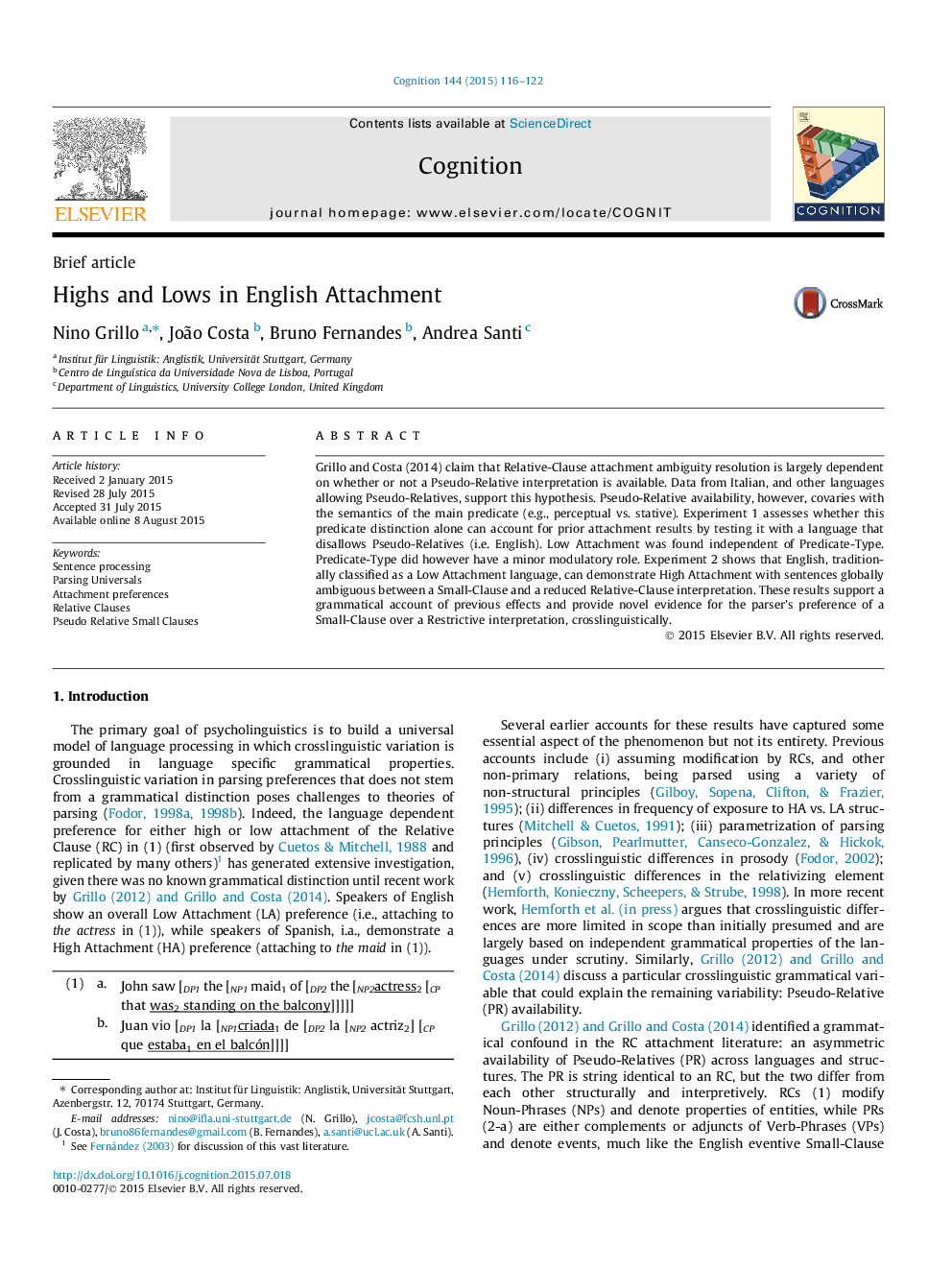| Article ID | Journal | Published Year | Pages | File Type |
|---|---|---|---|---|
| 7286633 | Cognition | 2015 | 7 Pages |
Abstract
Grillo and Costa (2014) claim that Relative-Clause attachment ambiguity resolution is largely dependent on whether or not a Pseudo-Relative interpretation is available. Data from Italian, and other languages allowing Pseudo-Relatives, support this hypothesis. Pseudo-Relative availability, however, covaries with the semantics of the main predicate (e.g., perceptual vs. stative). Experiment 1 assesses whether this predicate distinction alone can account for prior attachment results by testing it with a language that disallows Pseudo-Relatives (i.e. English). Low Attachment was found independent of Predicate-Type. Predicate-Type did however have a minor modulatory role. Experiment 2 shows that English, traditionally classified as a Low Attachment language, can demonstrate High Attachment with sentences globally ambiguous between a Small-Clause and a reduced Relative-Clause interpretation. These results support a grammatical account of previous effects and provide novel evidence for the parser's preference of a Small-Clause over a Restrictive interpretation, crosslinguistically.
Keywords
Related Topics
Life Sciences
Neuroscience
Cognitive Neuroscience
Authors
Nino Grillo, João Costa, Bruno Fernandes, Andrea Santi,
